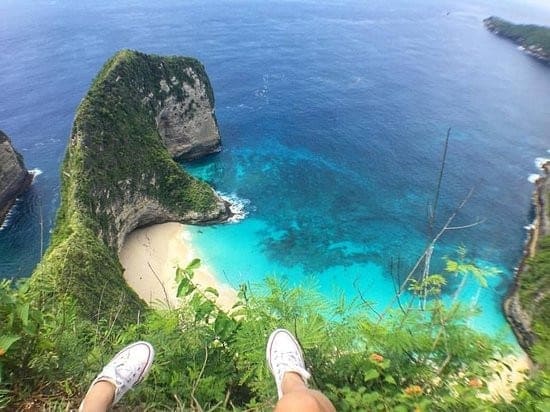Bali is undergoing a seismic shift in how it handles land development — not just rhetoric, but real action. Under Indonesia’s new leadership and coordinated provincial enforcement, the era of “build now, ask later” is being replaced with strict compliance and transparency.
Why Bingin? Why Now?

On July 21, 2025, authorities launched a massive crackdown at Bingin Beach, targeting over 45 structures built without proper permits on state-owned coastal land and protected green‐belt zones. These included warungs, villas, guesthouses and restaurants that had long operated without formal IMB/PBG or OSS/NIB documentation. The scale was unprecedented: around 48 structures were dismantled, involving more than 500 enforcement officers. Many business owners operated for decades under traditional hukum adat, only to discover that state land law overrides these informal approvals. This tension between customary law and national regulations sparked intense opposition, with owners protesting they were blindsided after investing their lives in the local economy.
Enforcement Over Legalization
This event was not about retroactive normalization. The government intentionally refused to legalize the buildings by issuing permits or charging usage fees, choosing instead demolition. That decision was symbolic: it signalled that bypassing permit procedures will no longer be tolerated, and new construction requires pre‑approval and adherence to zoning laws.
Legal, Economic, and Cultural Ramifications
Officials cited violations of spatial planning, environmental regulations, and improper use of state coastal land under laws like Law No. 27 of 2007 and Regulation Koster No. 24/2020. These explicitly restrict commercial development on cliff and beach boundaries. Despite enforcement justification, the fallout has been dramatic. Workers, local warung owners, and expatriates found themselves jobless overnight. Some reported over 170 staff laid off at once, with no transition plan offered. Social media erupted in criticism. Surfing champion Kelly Slater and other global influencers questioned whether these actions paved the way for luxury developments, risking Bali’s bohemian identity. Many locals also cited decades of unaddressed operations on the land, wondering why enforcement had only arrived now.
What Lies Ahead?

Enforcement is just beginning. Authorities now have eyes on Balangan Beach, where 23 structures also appear to violate zoning laws and state‐owned land rules. The goal is to complete enforcement there by end of August 2025, potentially setting a new standard for land compliance across Bali’s southern coast.
A New Paradigm for Bali
The Bingin demolition isn’t merely punitive—it reflects a strategic pivot toward sustainable, regulated development. Bali still welcomes tourism, investment, and growth. But developers must now operate within legal frameworks that protect public land, cultural heritage, and environmental integrity.
For investors and property developers, the message is clear: the old playbook of “build now, ask later” no longer applies. Zoning, land-use classification, and environmental approval are not bureaucratic hoops—they are the planning tools of a sustainable Bali. As Governor I Wayan Koster emphasized, if violations continue unchecked, “Bali will be damaged”, not preserved. Whether Bingin gets restored as a protected green zone or eventually reimagined in compliance, the rule of law has stepped back on stage—stronger than ever.
Read also: Buying in Bali? Why Avoiding “Illegal Villas” Starts with Legal Compliance



